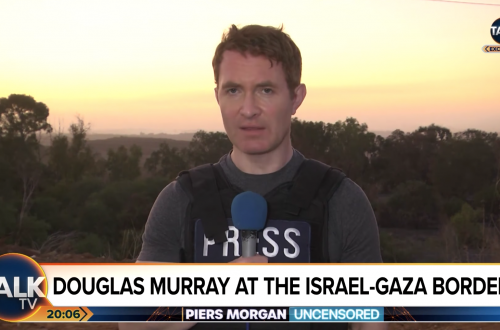Guest post by Judeosphere
It’s time: Supporters of Israel need to raise their voices against the further expansion of Israeli settlements.
Why especially now? Because we’re at a crucial turning point. Pundits and policy wonks will spend the next several months debating whether Israel “won” this war—but by every significant metric, Israel has emerged from the Gaza conflict in a stronger position than before.
Put simply, Israel waged a war of self-defense against Hamas, and it did so without any meaningful repercussions from the international community.
A popular meme making the rounds is that Israel has turned itself (yet again) into a pariah state. An editorial in The Guardian recently declared, “The question – as Israeli tanks grind into Gaza City– is what actions or arguments the rest of the world can take or make that will have any resonance in a country which now gives every appearance of having turned its back on global opinion.” Writing in Newsweek, Rod Nordland says: “Israel has never been more isolated…. Europe, never Israel’s close ally, erupted in near unanimous outrage over Gaza….Israel is accustomed to attacks from the left and the U.N. This time, though…. the secretary-general was unusually outspoken…Israel has just one key friend. Could Obama, who promised the Muslim world ‘a new way forward’ in his Inaugural Address, loosen the bond? A recent Pew poll shows 55 percent of U.S. Republicans, but only 45 percent of Democrats, approve of Israel’s actions in Gaza. Given that Democrats now rule, Israel may need to worry more about the mood on Main Street than on the Arab Street.”
But opinion polls worldwide tell a different story—the public mood was a mix of criticizing Hamas, ambivalence (both Israel and Hamas are to blame) and apathy (none of our business). Those who singled out Israel for criticism tended to be in the minority. For instance, the Pew Poll cited by Newsweek is correct: Only 45 percent of Democrats approved of Israel’s actions in Gaza. Yet, the same poll also found that only 12 percent of Democrats were in favor of publicly criticizing Israel. Polls in the Netherlands reveal that 33 percent held Hamas accountable for the escalation of the conflict, while 36 percent said both were equally responsible. The Dutch cabinet’s position is that there is no need for sanctions against Israel over its military action in the Gaza Strip. This view was supported by 48 percent and considered too mild by 44 percent.
Meanwhile, some 29 percent of Danish citizens sympathized with Israel versus only 22 percent who sided with the Palestinians. Another 38 percent of the survey respondents said they believe Israel and the Palestinians were equally responsible for the situation. And, in France, a survey carried out by the daily Le Parisien found that 23 percent of respondents blamed Hamas for the escalation, 18 percent Israel and 28 percent both sides equally. The largest group, 31 percent, offered no opinion.
So much for “near unanimous outrage.”
Meanwhile, the Arab world revealed itself to be as impotent and divided as ever. The European Union has acknowledged the validity of Israel’s concerns and pledged to assist in preventing Hamas from smuggling weapons. The United States and the EU still refuse to formally recognize Hamas. (Even China chastized Hamas, telling them to get a clue.) Throughout the crisis, the West Bank was largely quiet. And those brave Hezbollah freedom fighters didn’t seem all too anxious to launch rockets and open a second front in the war.
In other words, Israel demonstrated that it can withdraw from Palestinian territory, deliver a punishing military blow to defend itself—and do so without any meaningful opprobrium from the international community.
So, doesn’t this demonstrate that Israel can withdraw from the West Bank and still guarantee its security?
I’m under no illusions that this would usher in a golden era of peace. Those who reject the very existence of Israel will not accept a two-state solution. And, if even one square inch of disputed territory remains part of Israel, it will remain a rationale for armed resistance against the Jewish state. Still, I agree with Jeffrey Goldberg that it’s the best of all worst alternatives: “For reasons of demography, security and morality, Israel should negotiate its way out of the West Bank. But would this mark the end of the conflict? Only a fool says yes.”
Many supporters of Israel oppose the settlements and support withdrawal from the West Bank. But, I think the time has come to go beyond the ritual “tsk, tsk” condemnations. I can understand the reluctance: Some of us feel uncomfortable declaring what is best for Israel’s security when we live safely out of range of rockets and suicide bombers. And none of us relish the idea of providing rhetorical ammunition to those who seek to boycott and isolate Israel.
When it comes to affecting Israeli behavior, all eyes turn toward Washington. Israel, it should be noted, already pays a financial penalty for its ongoing construction of the settlements. In 2003, the Bush administration reduced loan guarantees to Israel by nearly $300 million—an amount equal to Israel’s estimated spending on settlement construction in the West Bank and Gaza Strip. Meanwhile, direct financial aid (pdf) to Israel’s economy during the most recent Fiscal Year was zero dollars. All direct U.S. aid to Israel is currently in the form of military assistance.
But, there are options for pushing Israel to freeze the settlements that do not involve coercive measures which would undermine Israel’s qualitative military edge or create a permanent rupture in U.S.-Israeli relations. Former U.S. diplomat Aaron David Miller had this to say to the Atlantic:
“We’ve raised the settlement issue plenty [in the past], we’ve said it’s bad,” Miller said, “but ‘serious’ means why are you doing this? Give me a transparent accounting of what you’re doing, because I’m not sure even you understand how vast and expansive the settlement project has become.” And what if nothing changes? Instead of cutting off aid, which he views as neither warranted nor politically feasible, Miller favors “taking away our auspices” – that is, Obama telling the next Israeli Prime Minister “I am not going to say Israel is committed to peace when you are doing something on the ground which prejudges the disposition of the land you claim to be willing to give away.” He believes not even Benjamin Netanyahu would be able to explain to Israelis why, at this price, expanding settlements should continue.
Ironically, the people who have the least faith in Obama are among Israel’s strongest critics. Take, for instance, John Mearsheimer, who recently wrote in the London Review of Books: “Many in the West expect Barack Obama to ride into town and fix the situation. Don’t bet on it. As his campaign showed, Obama is no match for the Israel lobby. His silence during the Gaza war speaks volumes about how tough he is likely to be with the Israelis.”
Of course, Mearsheimer fails to note that only 19 percent of Americans (both Republicans and Democrats) believed that Obama should comment on the Gaza crisis before he was sworn in as president. (Wow, the Lobby is bigger than we imagined!) And, commentators like Mearsheimer conveniently forget that Obama told AIPAC (yes, AIPAC) that Israel must freeze its settlements if there is to be a final, two-state agreement.
So, Obama has the will. And Obama has options. I think it is now incumbent upon supporters of Israel to make themselves heard, and give him the political space necessary to push Israel to stop the settlements. For too long, the loudest voices on this issue have been religious Christian and Jewish zealots who still hold to the idea of a “Greater Israel” and the nitwits on the “We are Hamas” Left who want to see Israel completely isolated and boycotted. It’s time for us to raise our voices and show there is a third way.


